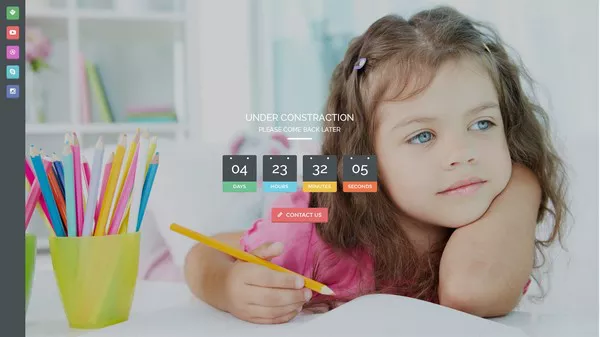Breastfeeding is a beautiful and essential bonding experience between a mother and her baby. It’s a time when the mother’s body provides nourishment and vital antibodies to the infant. However, many mothers often wonder, “What happens if I don’t eat while breastfeeding?” The answer is more critical than you might think. In this comprehensive article, we will delve into the various aspects of why proper nutrition during breastfeeding is essential. We’ll discuss the effects of not eating adequately, the impact on breast milk composition, and the overall maternal health during this phase.
Effects of Not Eating While Breastfeeding
Proper nutrition is the cornerstone of ensuring both you and your baby stay healthy during the breastfeeding journey. Let’s break down the effects of not eating while breastfeeding into several key aspects:
1. Diminished Milk Production
Breast milk production is a metabolically demanding process. When you don’t eat enough, your body might not have the necessary energy and nutrients to support milk production adequately. As a result, your milk supply can decrease, leaving your baby hungry and frustrated.
2. Nutrient Deficiency in Breast Milk
Breast milk is often referred to as “liquid gold” because it provides your baby with all the essential nutrients required for growth and development. However, if you’re not consuming a balanced diet, your breast milk may lack vital nutrients, such as vitamins, minerals, and healthy fats. This deficiency can adversely affect your baby’s health and development.
Vitamin Deficiencies: A lack of vitamins in your diet can lead to deficiencies in breast milk. For example, inadequate vitamin D intake can affect your baby’s bone health.
Mineral Imbalances: Low intake of minerals like calcium can impact both your and your baby’s bone health.
3. Fatigue and Weakness
Breastfeeding already demands a lot of energy from your body. If you’re not eating enough, you may feel fatigued and weak, making it difficult to care for your baby and yourself.
4. Postpartum Weight Retention
While it’s natural to want to shed those pregnancy pounds, undereating during breastfeeding can lead to postpartum weight retention. Your body may hold on to extra fat as a survival mechanism, making it harder to return to your pre-pregnancy weight.
5. Mood Swings and Emotional Health
A lack of proper nutrition can contribute to mood swings and even postpartum depression. Nutrient deficiencies can affect your emotional well-being, making this beautiful phase of motherhood more challenging.
Nutrition for Breastfeeding Mothers
Now that we understand the potential consequences of not eating adequately while breastfeeding, let’s explore the key elements of a proper breastfeeding diet:
1. Calories
Breastfeeding requires extra calories, approximately 300-500 more per day than your pre-pregnancy intake. Make these calories count by choosing nutrient-dense foods.
Foods to Include: Lean proteins, whole grains, fruits, vegetables, and dairy or dairy alternatives.
Foods to Limit: Sugary snacks and drinks, excessive caffeine, and highly processed foods.
2. Hydration
Staying well-hydrated is crucial for milk production. Aim to drink plenty of water throughout the day. Some breastfeeding mothers find it helpful to have a glass of water each time they nurse.
3. Balanced Nutrition
Ensure your diet includes a variety of foods to provide a wide range of nutrients to you and your baby. Focus on the following:
Proteins: Lean meats, poultry, fish, beans, and tofu.
Calcium: Dairy products, leafy greens, and fortified plant-based alternatives.
Iron: Lean meats, legumes, and fortified cereals.
Omega-3 Fatty Acids: Fatty fish (like salmon and trout), flaxseeds, and walnuts.
4. Supplements
Sometimes, it’s challenging to get all the necessary nutrients from your diet alone. Discuss with your healthcare provider if you need supplements, such as vitamin D or iron.
Maternal Health During Breastfeeding
Your health is just as important as your baby’s during this time. Taking care of yourself ensures you can provide the best care for your little one. Here are some tips for maintaining your health:
1. Rest
Breastfeeding can be exhausting. Try to rest whenever your baby sleeps to recharge your energy.
2. Seek Support
Don’t hesitate to ask for help from friends, family, or support groups. Emotional support can be just as vital as nutritional support.
3. Listen to Your Body
Pay attention to your hunger and fullness cues. Eat when you’re hungry and stop when you’re satisfied.
4. Regular Check-Ups
Continue with your postpartum check-ups to monitor your health and discuss any concerns with your healthcare provider.
Conclusion
In conclusion, the question, “What happens if I don’t eat while breastfeeding?” underscores the critical importance of proper nutrition during this phase. Insufficient nutrition can impact milk production, nutrient quality in breast milk, maternal health, and even the emotional well-being of new mothers. It’s essential to prioritize your diet, stay hydrated, and take care of your overall health to ensure both you and your baby thrive during this beautiful journey of breastfeeding. Remember, a well-nourished mother is better equipped to provide the best start in life for her child.


